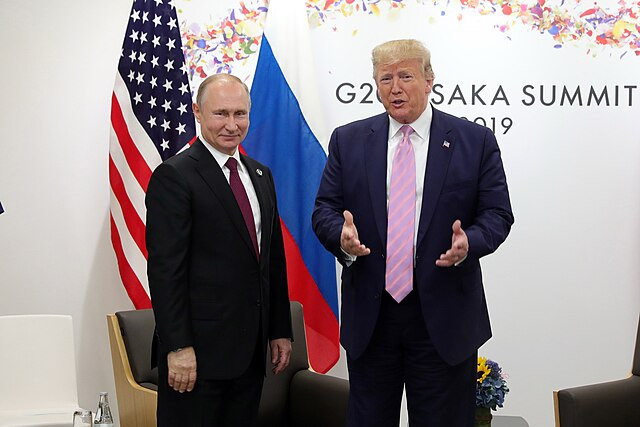Russia launched one of its largest overnight assaults on Ukraine this month, striking Kyiv and several regions with drones and missiles just hours after conducting nuclear weapons drills and as the White House confirmed a delay in plans for a meeting between Presidents Donald Trump and Vladimir Putin.
Ukrainian officials said at least six people, including two children, were killed in the latest wave of attacks. According to Kyiv Mayor Vitali Klitschko, explosions were reported across four districts, damaging residential towers, warehouses, and energy infrastructure. Drone debris and missile fragments caused fires in several buildings, and emergency crews evacuated residents in the Dnipro and Pechersky areas.
Oleh Syniehubov, the governor of Ukraine's northeastern Kharkiv region, said railway infrastructure and cars were damaged in an overnight drone strike. In the southern Odesa region, governor Oleh Kiper reported that drones hit energy and port facilities in the city of Izmail, while Ukrainian authorities declared air alerts in Zaporizhia amid ongoing barrages.
The attacks coincided with a major Russian nuclear training exercise. The Kremlin released video footage showing General Valery Gerasimov, Russia's chief of the General Staff, briefing Putin on intercontinental ballistic missile drills designed to test the country's nuclear readiness.
"The dates haven't been set yet, but thorough preparation is needed before then, and that takes time," Kremlin spokesman Dmitry Peskov told reporters, confirming that discussions over a Putin-Trump summit were continuing but that no date had been agreed.
The White House, however, said on Tuesday there were "no plans for President Trump to meet with President Putin in the immediate future." Trump himself told reporters, "I don't want to have a wasted meeting ... I'll see what happens."
According to three sources cited by Reuters, Russia reiterated to the United States its terms for a cease-fire that would require Ukraine to surrender control of the entire Donbas region - a demand viewed by Washington and Kyiv as unacceptable. Russian Deputy Foreign Minister Sergei Ryabkov told state media that he "could not confirm" the report but acknowledged, "It's a difficult process, I admit - but that's precisely what diplomats are for."
Ukraine said it struck back with Franco-British Storm Shadow missiles targeting a chemical plant in Russia's Bryansk region. Widespread power outages followed across multiple Ukrainian provinces as emergency services worked to restore damaged grids.
President Volodymyr Zelenskyy, responding to the attacks, said, "Russian words about diplomacy mean nothing as long as the Russian leadership does not feel critical problems. And this can be ensured only through sanctions, long-range capabilities, and coordinated diplomacy among all our partners."
Foreign Minister Andrii Sybiha appealed to Ukraine's allies to mobilize "additional energy support" to prevent a humanitarian crisis as winter approaches. Shares in major European defense firms rose following the latest escalation, reflecting growing expectations that NATO countries will expand weapons aid.
Zelenskyy, who met Trump in Washington last week seeking long-range Tomahawk missiles, has yet to secure such weapons. Trump, after a phone call with Putin, appeared to step back from the idea.






